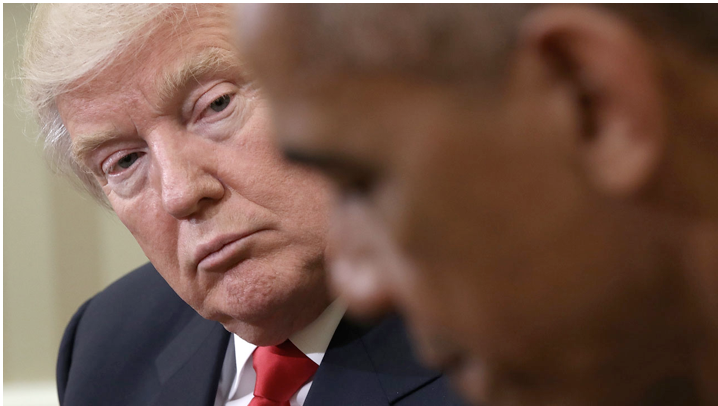CommentsELECTION REFLECTIONS-I promised myself I was not going to write about the presidential election -- and then Donald Trump won. That result has been characterized as the most stunning in American political history. Truman beating Dewey in 1948 was surprising. There’s no word strong enough to describe this outcome.
One wonders what the great columnist of his time, H. L. Mencken, would have to say. Among other things, he wrote, “Democracy is the theory that the common people know what they want, and deserve to get it good and hard.” He’s also credited with claiming you can never underestimate the intelligence of the American people.
It’s beyond belief how wrong the pollsters and pundits were. In an era ruled by algorithms, the whiz kids blew it big time. The operator of one (until now) fairly accurate site that aggregated polls admitted that everyone in his field got it wrong from the very beginning. He also pointed out that in this election nothing (Trump’s outrageous statements, poor debate performance, lack of support from his own party) mattered. Nor did Clinton’s status as perhaps the most qualified candidate in history or the potential for making history as America’s first female president.
The question for historians is whether this election was the last gasp of the white, male power structure or herald of a new era of “America first” and walls -- physical and economic. I grew up among the people in the upper Midwest and understand why they would choose to accept Trump’s sales pitch to “Make America Great Again.”
In my youth in a mid-sized city dominated by manufacturing, it was a given that anyone with the ability to get a high school diploma could go into a factory for the next 40 years and retire with a secure pension. Along the way, there would be a family and a house and nice cars. Much of that good middle-class life was due to the unions to which these workers belonged.
The jobs left for the southern states, where they don’t have unions, and then overseas, where they don’t have labor laws. The decline of the neighborhood where I grew up was dramatic. Houses were abandoned as factories closed. Eventually they were demolished and the street seems to slowly be returning to the state of nature it was in 150 years ago. Jobs left. Businesses left. Families left.
But, not all of them. Those who weathered the economic storms of Ohio, Michigan, Wisconsin and the other states of the Rust Belt voted for Trump as their last, best hope to bring back the past. He won’t, of course.
Building walls, turning our backs on America’s history of opening its doors to immigrants, and engaging in economic warfare with our trading partners isn’t going to alter reality. Nor is wrecking the social safety net, spending billions more on the military, and giving the biggest tax cuts ever to millionaires and billionaires.
That reality doesn’t matter. In 2008, half the electorate voted for Obama’s “hope and change.” Eight years later, the other half voted for Trump’s.
(Doug Epperhart is a publisher, a long-time neighborhood council activist and former Board of Neighborhood Commissioners commissioner. He is a contributor to CityWatch and can be reached at: [email protected]) Prepped for CityWatch by Linda Abrams.
Explore
Our mission is to promote and facilitate civic engagement and neighborhood empowerment, and to hold area government and its politicians accountable.

 CityWatch Los Angeles
Politics. Perspective. Participation.
CityWatch Los Angeles
Politics. Perspective. Participation.
17
Thu, Apr















